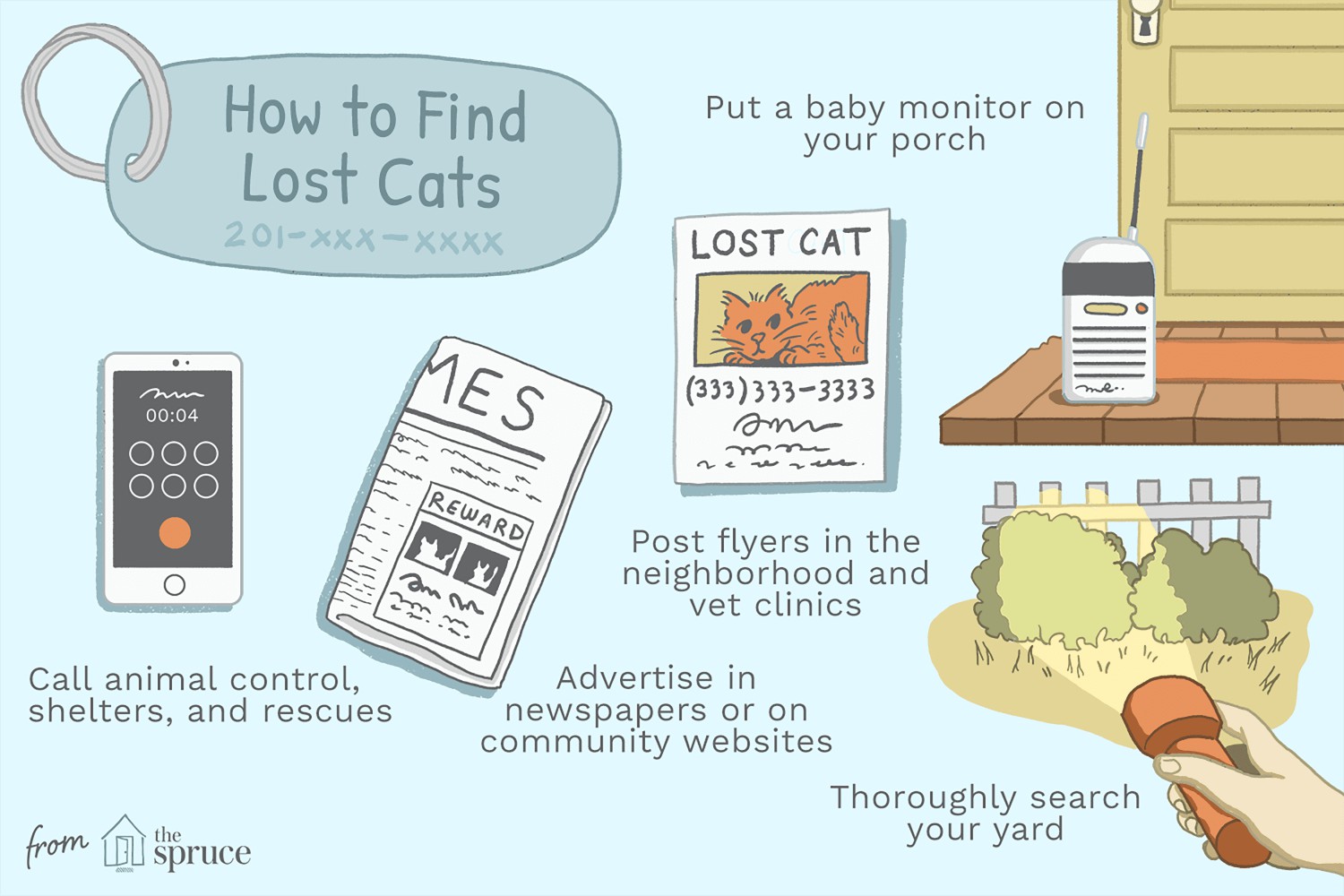If you're the owner of an indoor-outdoor cat, you may be faced with a situation in which your kitty is suddenly missing. Even indoor-only cats may slip out the door unexpectedly. However, chances are your cat did not go too far. Cats are very territorial (even neutered ones), so search nearby areas closely for any convenient hiding spots.
In order to find your cat, consider the possible reasons for his absence. This is the time to set aside emotions and evaluate the possibilities, with an appropriate action for each.
Human Intervention
There's a possibility that your cat may have been a victim of one of the following scenarios:
- Picked up by Animal Control
- Picked up by another cat lover who thinks your cat is "lost"
- "Rescued" by someone who thinks your cat is abandoned, neglected, or a stray
- Abducted for gain by professional "catnappers"
- Abducted by others for inhumane purposes (dog-baiting, ritual sacrifice)
- Trapped and "disposed of" by a cat-hating neighbor
- Accidental "abduction" (Cat hides in a vehicle; is driven out of the area)
Injured or Killed
- By auto accident
- By a dog or another cat
- By wild animals (coyote, skunk, or raccoon)
Plan Your Strategy
With these considerations in mind, you can plan your strategy for recovering your cat if he is still alive or to bring closure if it is discovered he's not. Time is of the essence, and you may need to perform all of the following actions:
- Check your yard first: Indoor cats that sneak out usually stay nearby in their own yards, or hide under decks, foundations, and shrubbery.
- Use a baby monitor on your porch: Leave a bowl of food on your porch with an electronic baby monitor or other home monitoring system targeted on the bowl.
- Create flyers with pictures of your cat: Offer a reward, and distribute the flyers door-to-door in at least a three-block radius. In addition, post the flyer in store windows and on telephone poles.
- Alert your animal control officer: Give them a flyer and ask them to be on the lookout for your cat, dead or alive.
- Call local veterinarians: It is possible a guardian angel brought your cat in with injuries; ask the vets if you can post a flyer in their clinics.
- Visit your local animal shelter: Leave a flyer and ask if a cat meeting the description has been brought in, alive or dead.
- Advertise: Most local newspapers and shopping guides will allow free "lost and found" ads. Also, check the newspaper listing for "found cats."
- Post to local lost/found internet and social media pages: Some communities sponsor websites specifically designed for lost/missing pets.
- Check with local rescue organizations: Ask for permission to visit foster homes that may have recently taken in a cat meeting the description.
- Hire a pet detective: Chose a pet detective trained to track lost animals through the use of technology.

The Spruce / Jaime Knoth
The Importance of Identification
If your cat has proper identification, it is more likely to be returned to you. If your cat wears a collar and tags, most people will return him to you if they think he is lost. With micro-chipping and/or ear tattooing, many veterinarians and animal shelters will be able to notify you, even if the collar/tags were removed. Ear tattoos that were applied at the time of spaying or neutering can serve as an indicator that your cat has had previous preventative care and may have a home. A GPS cat tracker can also help to find your cat if they get lost.
Use Caution in Offering Rewards
Sad stories have been told about cruel extortionists who extracted large cash rewards from grieving pet owners under the premise of having "found" their pets. If you advertise with a reward, leave out one or two pertinent identifying details of your cat (e.g. he has one black whisker, one white toe, etc.) Don't leave yourself open to false hopes, and by all means, don't wire reward money until you see your cat.
Become Involved and Involve Your Neighbors
Your neighbors can serve as another set of eyes to be on the lookout for your lost cat. Inform them if your cat is missing and keep them updated on whether your cat has been found or if the search continues. Take the time to be neighborly and keep an eye out for your neighbors’ cats if they are concerned about their whereabouts.
Keep Your Cat Indoors
Although indoor cats occasionally slip out, they rarely go far, and can usually be lured back in easily before meeting harm. It goes without saying that an inside cat is a safer cat.
Hopefully, these tips will help foster a successful recovery. Remember, it's every bit as frightening for our wayward cats as it is for us.
Related Article

7 Times Your Cat Acts Exactly Like a Baby
If you’re like most pet parents, your cat has probably become a member of your family. And, hopef

Can Dogs Eat Raw Chicken Feet?
Many pet stores stock raw or dehydrated treats for dogs, including chicken feet. Some companies tou

Can Cats Eat Apples?
Apples are one of the most popular fruits and you can find them almost anywhere. Coming in countles

Compelling Arguments for Early Spay and Neuter of Cats
Although the concept of early spaying and neutering of both cats and dogs is not new, its use by ve

Luxating Patella in Cats
Luxating patella, the technical term for a kneecap popping out of place, creates instability in a c

Cuterabra in Cats
Cuterebra is the larva of a botfly that can affect cats, dogs, ferrets, and even humans. It seems l

Why Is My Dogâs Ear Swollen? Causes and Treatment of Ear Hematoma
An ear hematoma is a pool of leaked blood that gathers underneath the skin, causing painful swellin

Kitten Diarrhea: When to See the Vet
Kitten diarrhea is a fairly common problem with many potential causes. If your kitten has loose or
About FleaFree Feline
We are a premier digital platform committed to delivering high-quality content to our readers. Our mission is to provide accurate, reliable, and engaging information that adds value to our audience's daily lives.
Our team consists of experienced content creators and subject matter experts who uphold the highest standards of professionalism. In an era of information overload, we curate content with care, ensuring our users receive only the most relevant and trustworthy information.
Beyond just reporting facts, we focus on depth and context. Through expert analysis, comprehensive research, and clear presentation, we help our audience gain meaningful insights and make informed decisions.
We take pride in being a trusted information source for our growing community of readers. Our user-first approach means we continuously adapt to provide content that meets our audience's evolving needs and interests.
Innovation and excellence drive everything we do. We're committed to improving our platform and services to deliver the best possible experience for our users.


Comments on " 10 Ways to Find Your Lost Cat" :